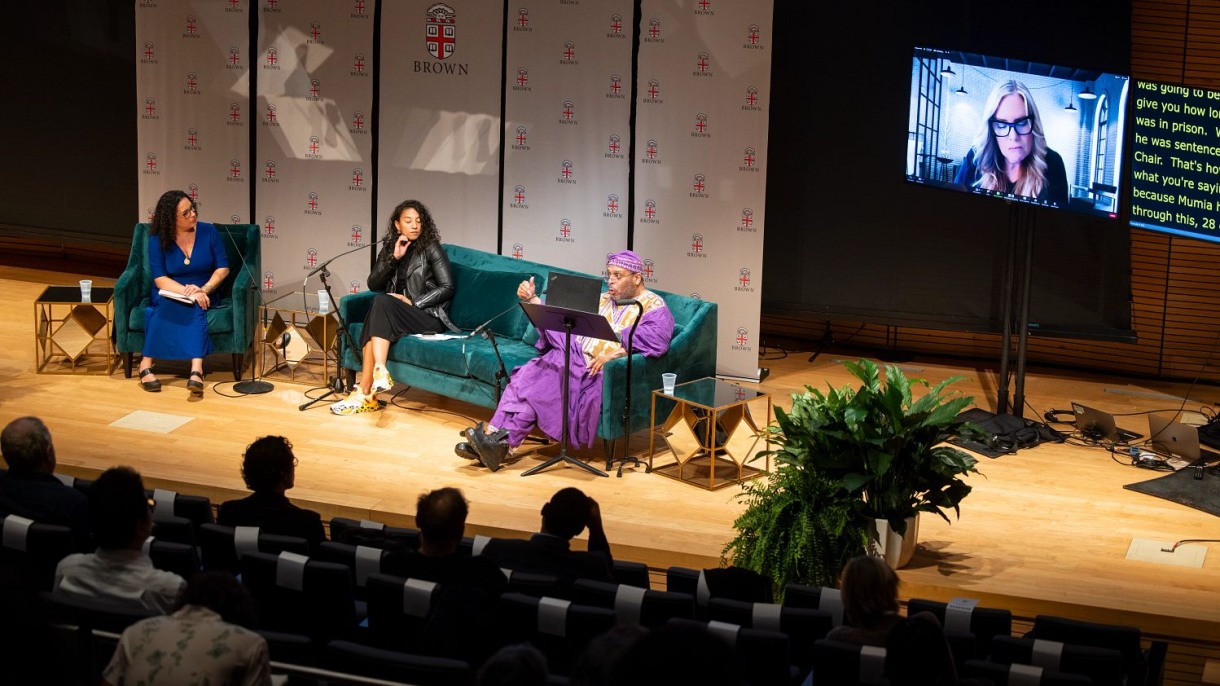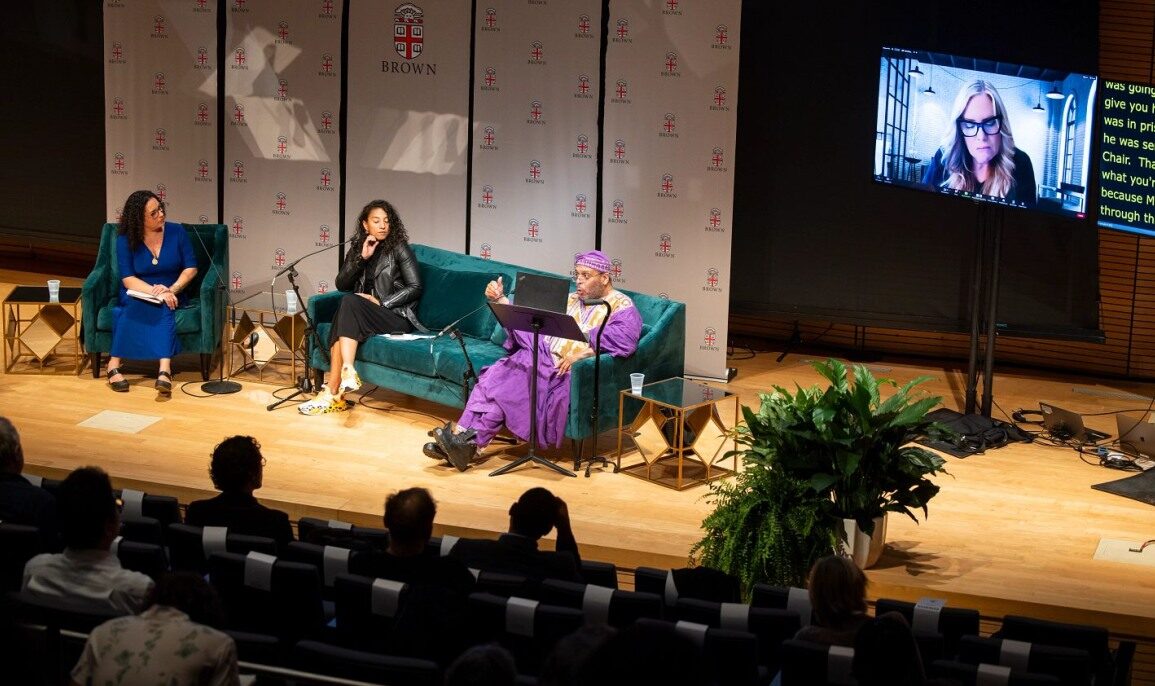
The exhibition “Mumia Abu-Jamal: A Portrait of Mass Incarceration,” which opened to the public on Sept. 28, also links past and present by using Abu-Jamal’s writings, correspondence and creative work as the entry point into a larger conversation about the impact of the American carceral system on millions of lives.
In the exhibition, “There is a replica of the cell that Mumia Abu-Jamal occupied for almost three decades on death row, and I was just mesmerized, because it [gives] perspective on… the restriction of space, the sensory deprivation,” said Julia Wright, a veteran of the Black Panther Party and the daughter of famed Black author Richard Wright.
The Paris-based activist spoke at a Sept. 27 keynote conversation on how women often take on leading roles in social justice movements, joining Johanna Fernandez — a Baruch College historian and Brown alumna who is a longtime advocate and friend to Abu-Jamal — and Angela Y. Davis, the famed organizer and feminist scholar.
“Of course, the majority of people who are in prison identify as men,” Davis said. “However, who does that institution most impact? Who are the people you see in the visiting room?… Prison work has, in many ways, always been women’s work.”
Davis, who herself spent nearly two years behind bars, discussed how studying incarcerated people’s stories, and the stories of their loved ones, could help scholars identify and disrupt historical patterns of injustice and discrimination.
In thinking about the throughline from slavery to the Civil Rights Movement to the Black Lives Matter movement, “I [keep] remembering how [this] repetitiveness appears largely because we don’t manage to solve the problem, or we misconstrue the problem in the first place,” Davis said. “We believed slavery was abolished, and of course we recognize the many ways now that slavery is incorporated into the warp and weft of the fabric of this country. It’s our job to create ruptures… it’s our job to stop that pattern of repetition.”
Disrupting those patterns, Fernandez said, involves giving voice to those who aren’t in leadership roles and whose records haven’t always been preserved — until now. Fernandez first recognized the importance of archiving as a student at Brown in the 1980s and 1990s: When she took part in campus demonstrations advocating for need-blind admissions, she saved some of the signs and posters. Those materials are now part of the John Hay Library’s Voices of Mass Incarceration collections, along with Fernandez’s decades-long correspondence with Abu-Jamal and her extensive scholarship on social justice movements.
“The things of the people at the bottom of society… are rarely preserved [or] are preserved in a very precarious way,” Fernandez said. “There’s been a lot written about imprisonment in the last 20 to 30 years; most of it comes from scholars and journalists. [But] who better to talk about… imprisonment than the imprisoned themselves? In a country that has imprisoned so many of its citizens, you can’t understand our society without hearing from that segment of the population… What bringing in the voice of the prisoner does is, it returns humanity to those our society has dehumanized.”
This post was originally published on this site be sure to check out more of their content.







